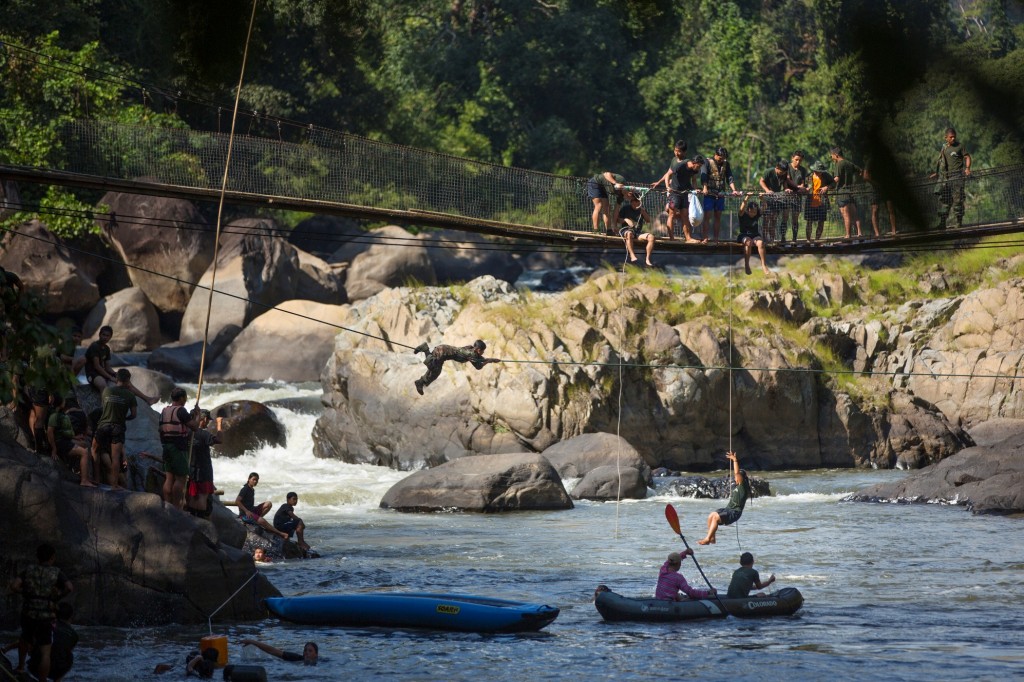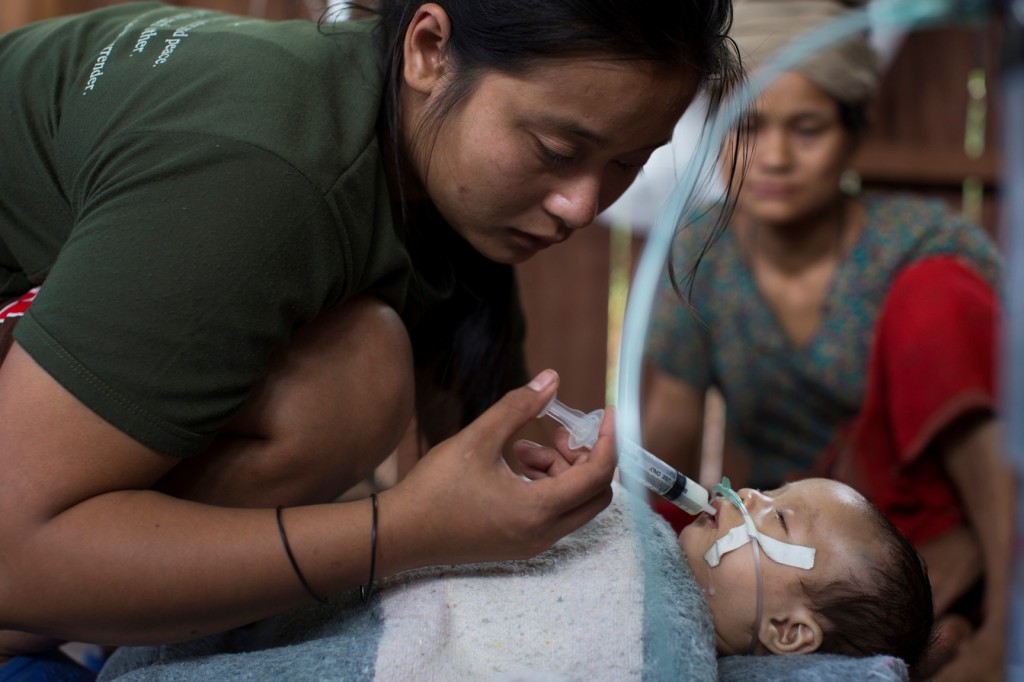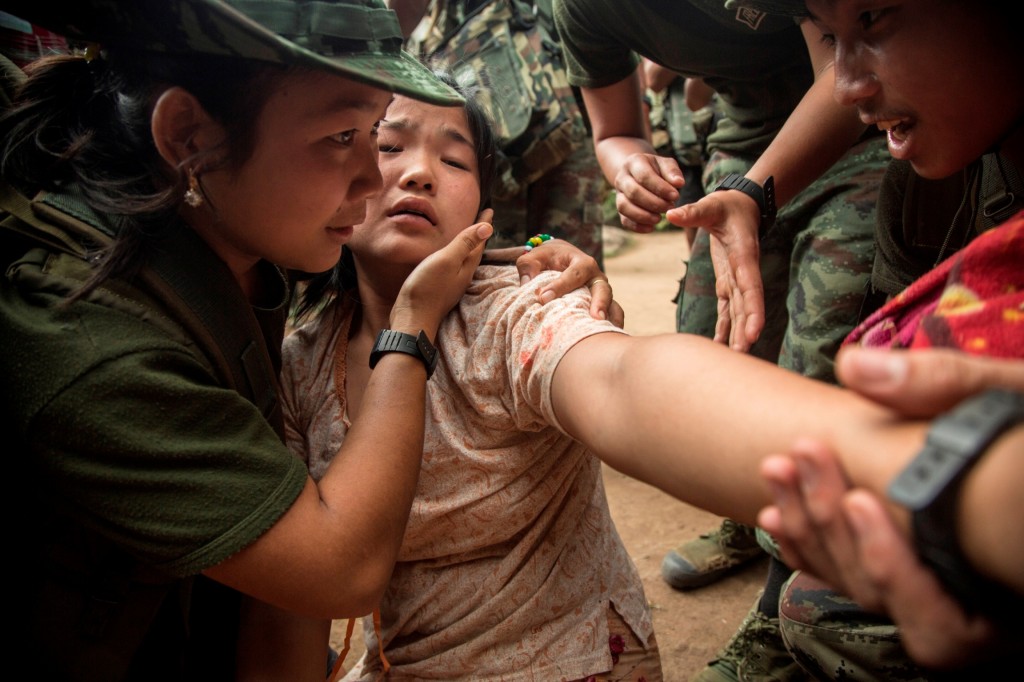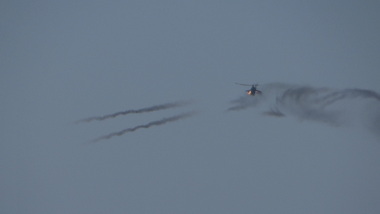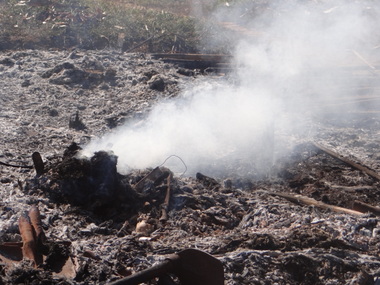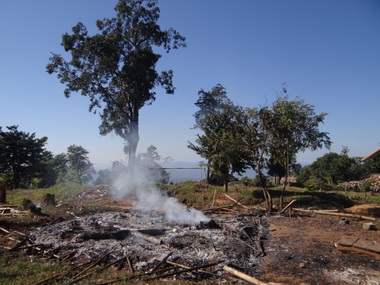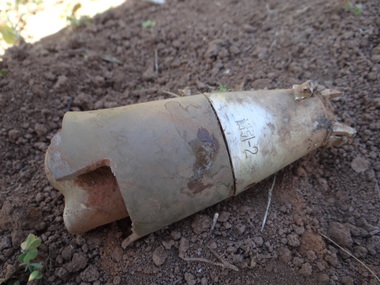FBR Report: 15 Multi-Ethnic Teams Complete Relief Training in Karen State, Burma
4 December 2012Karen State, BurmaTo our dear friends and supporters,
Many transitions have taken place in Burma 2012. On 12 January 2012, Karen State signed a ceasefire with the Burma Army, and in the following months, many other ethnic states followed suit. However, Burma is still far from being a country of justice and freedom. In Kachin State over 100,000 people have fled the attacking Burma Army. Since late May 2012, Arakan State has experienced an explosion of tension between the Arakanese, who are predominantly Buddhist, and the Rohingya, who are predominantly Muslim, resulting in over 100,000 displaced. In the midst of uncertainty, the Free Burma Rangers remains committed to serving in areas of need, bring help, hope and love to people throughout Burma. 15 new relief teams from Karen, Karenni and Mon states were trained, with assistance from Lahu, Naga and Shan Rangers. Today, we celebrate with our students as they graduate from the 2012 Relief Team, Leadership and Ethnic Unity Training in Karen State, Burma.
![River Crossing]()
Free Burma Rangers practice various water-based exercises from rappelling to life-saving and traversing on rope lines as part of a two-month training. The techniques prepare FBR trainees to navigate Burma’s rugged mountainous terrain.
These graduates have completed subjects such as camera and video documentation, security, Good Life Club counseling, communications, land navigation and medicine, as well as leadership. In addition, students have been taught multiple ways to navigate the terrain, including swimming. One of the most challenging ways that the teams work together is in helping all their teammates cross a major river at night. When weak swimmers struggle against the strong current, the stronger swimmers on the team surround them to provide strength and encouragement until all team members have made it safely across.
![GLC hygiene lesson]()
Rangers teach Karen children anatomy and hygiene during a Good Life Club program.
![GLC singing]()
Rangers learn new songs as part of the Good Life Club program.
Some of our students are receiving basic training for the first time, but others are returning students coming back to receive advanced training. For all the students, the days are busy from the rising of the sun until long after it sets. The average day commences with 0430 wake up and physical training (PT) followed by camp cleanup, then classes and afternoon PT with evening classes until 9pm. PT sometimes includes carrying the loads of supplies which keep the camp and training running. Classes are taught in the classroom, in the jungle, and in the river and there are frequent practical exercises, some occurring in the middle of the night, in which the students practice their new skills.
![PT]()
Ranger teammates carry each other during physical training exercises.
![medical treatment]()
A Karen FBR student medic feeds milk to a baby hooked up to a newly installed oxygen machine as the mother watches on.
Above, a Karen FBR student medic feeds milk to a baby hooked up to a newly installed oxygen machine as the mother watches on. The medic saved the baby’s life, who later recovered and returned to their nearby village. The jungle clinic services surrounding Karen villages that lack adequate health care.
![Training simulation]()
Ranger teammates rescue a wounded villager during a training exercise simulating a Burma Army attack.
It takes everyone working together to pull off a successful training. Christians, Buddhists and Animists all live and work together here as a Ranger family. United by our belief that all people deserve freedom, justice and equality, we seek to bring the light of hope throughout Burma as we prepare these new teams to go out to their home regions in the country.
![Graduation photo]()
Graduating class of 2012 from Karen State, Burma
Inspired by God's call to love all men, we seek to inspire all our rangers to be God's hands and feet as they prepare to head out on their first relief mission.
Thank you and may God bless you,
The Free Burma Rangers
The Free Burma Rangers (FBR) mission is to provide hope, help and love to internally displaced people inside Burma, regardless of ethnicity or religion. Using a network of indigenous field teams, FBR reports on human rights abuses, casualties and the humanitarian needs of people who are under the oppression of the Burma Army. FBR provides medical, spiritual and educational resources for IDP communities as they struggle to survive Burmese military attacks.
For more information, please visit www.freeburmarangers.org
© 2010 Free Burma Rangers | Contact FBR
To unsubscribe from this email list, please respond to this email with the word REMOVE in the subject line, or send email to mailadmin@freeburmarangers.org.
![]()



